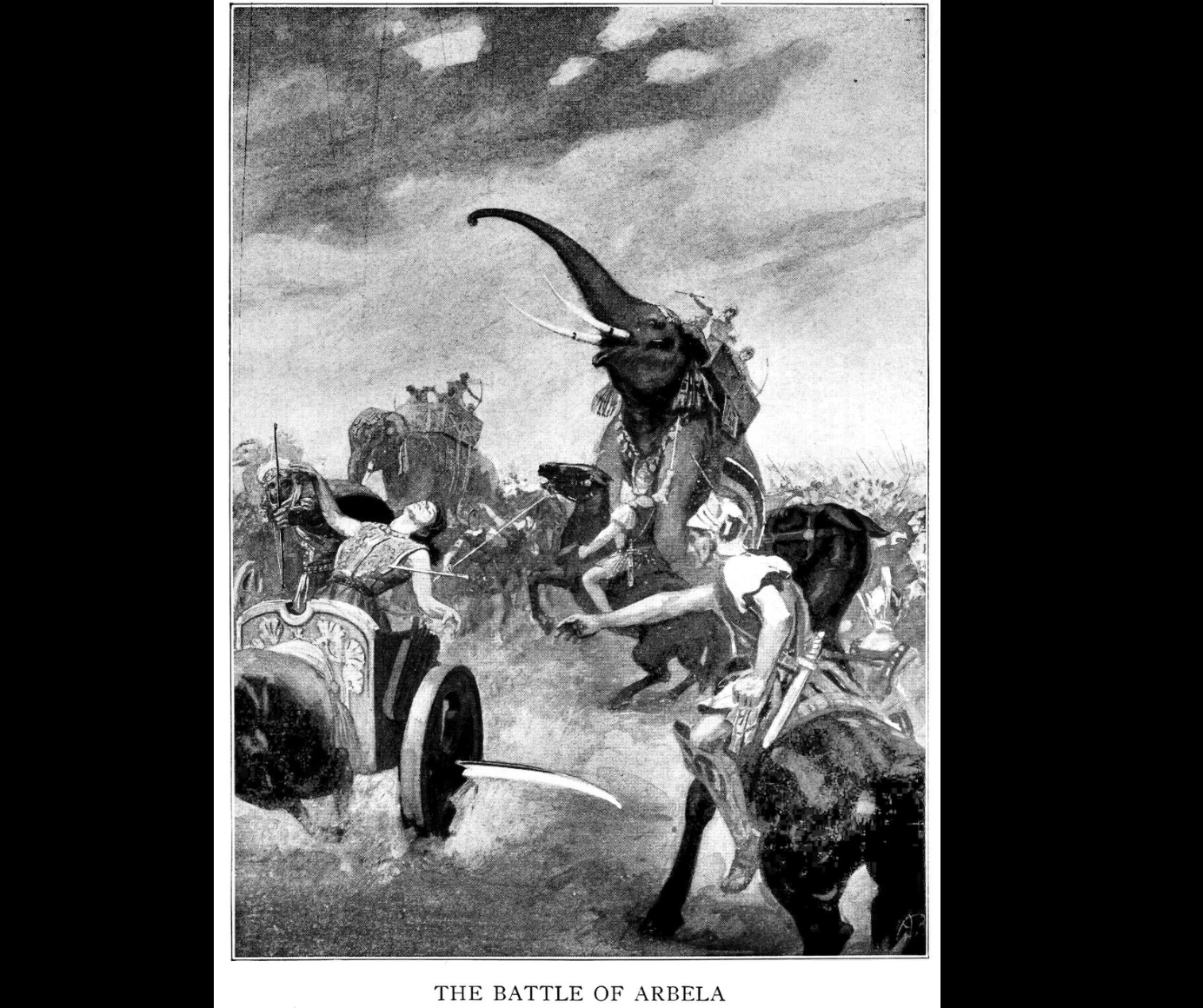1008: Because the Iran Deal is back on the table: 4of4: Dancing with the Devil: 4of4: The Perils of Engaging Rogue Regimes, by Michael Rubin Kindle Edition, 2015

Image: Scene of the Battle of Gaugamela (also called Arbela), near Duhok in days Kurdistan in Iraq. By skill, talent and extremely hard work, at this decisive battle Alexander and his troops defeated Cyrus III and the Achaemenid empire. "Though heavily outnumbered, Alexander emerged victorious due to his army's superior tactics and his deft employment of light infantry." The battle is still studied in military schools worldwide. http://JohnBatchelorShow.com/contact http://JohnBatchelorShow.com/schedules Parler & Twitter: @BatchelorShow Because the Iran Deal is back on the table: 4of4: Dancing with the Devil: 4of4: The Perils of Engaging Rogue Regimes Kindle Edition.by Michael Rubin (https://www.amazon.com/Michael-Rubin/e/B001K8VYMO/ref=dp_byline_cont_ebooks_1) (Author) Format: Kindle Edition, 2015 https://www.amazon.com/Dancing-Devil-Perils-Engaging-Regimes-ebook/dp/B00THFMDDQ/ref=tmm_kin_swatch_0?_encoding=UTF8&qid=1610846141&sr=1-1 The world has seldom been as dangerous as it is now. Rogue regimes—governments and groups that eschew diplomatic normality, sponsor terrorism, and proliferate nuclear weapons—threaten the United States around the globe. Because sanctions and military action are so costly, the American strategy of first resort is dialogue, on the theory that “it never hurts to talk to enemies.” Seldom is conventional wisdom so wrong. Engagement with rogue regimes is not cost-free, as Michael Rubin demonstrates by tracing the history of American diplomacy with North Korea, Iran, Iraq, Libya, the Taliban’s Afghanistan, and Pakistan. Further challenges to traditional diplomacy have come from terrorist groups, such as the PLO in the 1970s and 1980s, or Hamas and Hezbollah in the last two decades. The argument in favor of negotiation with terrorists is suffused with moral equivalence, the idea that one man’s terrorist is another man’s freedom fighter. Rarely does the actual record of talking to terrorists come under serious examination. While soldiers spend weeks developing lessons learned after every exercise, diplomats generally do not reflect on why their strategy toward rogues has failed, or consider whether their basic assumptions have been faulty. Rubin’s analysis finds that rogue regimes all have one thing in common: they pretend to be aggrieved in order to put Western diplomats on the defensive. Whether in Pyongyang, Tehran, or Islamabad, rogue leaders understand that the West rewards bluster with incentives and that the U.S. State Department too often values process more than results.